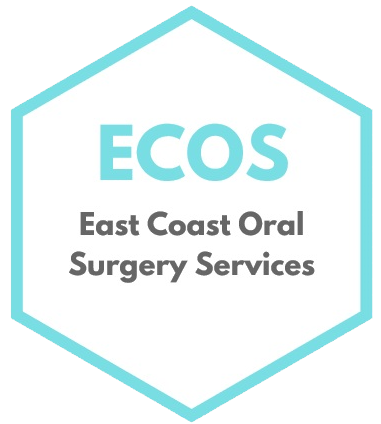Frequently Asked Questions
Frequently Asked Questions
Fees
We ensure a transparent and simple fee schedule which we aim to be cost effective for patients whilst still providing the highest quality of care. Payment plans are also be available for your treatment so please feel free to call our receptionist to enquire.
Privately insured patients may need to pay a ‘gap’ fee – this varies between cover and health funds. If you have hospital cover and should you wish to have a general anaesthetic, your stay in hospital is normally completely covered in addition to covering most of the anaesthetist’s fees.
What will happen at my consultation?
Our initial consultations are designed to make sure your surgeon and team have all the information needed to present the best possible treatment options to you. They are also designed for you to meet your team and talk about any specific requirements or questions you may have.
Can I book straight into have my surgery?
In some circumstances you may be able to book straight in as we can sometimes extend consultation appointments to include surgery if your surgeon feels its ok to do so. If you are in pain or cannot wait we will do our best to fit you in as soon as possible!
What are wisdom teeth, and why do they cause us problems?
Wisdom teeth are the third in the row of molar teeth to erupt into the mouth, hence dentists also call them ‘third molars’. There are normally four of them (two upper and two lower). They usually start to come through during late teens to early twenties. Sometimes, they do not cause problems until middle age or even later! About 30% of people don’t have wisdom teeth, and some people will have wisdom teeth which may not need to be removed. Current thinking suggests that 80% of people will need their wisdom teeth removed during their lifetime.
When wisdom teeth erupt they can get stuck, or ‘impacted’, onto adjacent teeth or bone. When this happens the gum pocket around the teeth can become sore, inflamed and infected due to the presence of bacteria which gets trapped under the gum.
This is called Pericoronitis (the most common cause of wisdom tooth pain). Other common problems that an impacted, or badly positioned wisdom tooth can cause include:
- Food impaction – between the tooth and the gum or adjacent tooth
- Decay of the wisdom tooth or adjacent (next door) tooth
- Resorption (destruction) of adjacent tooth
- Plaque accumulation, due to difficulty cleaning (causing gum disease/decay/bad breath)
- Cyst formation
- Cheek biting, causing soreness or ulcers
- Disruption to orthodontic treatment/crowding of teeth
When wisdom teeth are impacted and or causing problems, or likely to cause problems, it’s best to remove them. We can talk to you about how we do this in as much or as little detail as you like!
Who can remove wisdom teeth?
All dentists can remove them, but you may need to be referred to dentists who have had specialist training and experience.
Extractions that are carried out quickly but skilfully and carefully result in less pain, and complications afterwards, hence a quicker recovery. The knowledge and expertise of the surgeons at ECOS mean you will have the best possible outcome
What about tooth extractions?
People need teeth extracted for a variety of reasons; impacted (stuck) teeth, dental decay, periodontal (gum) disease, dental abscesses, pathology (such as cyst formation), unrepairable teeth, and to create room for orthodontic treatment. Some tooth extractions are simple, whereas some can be more complicated due to the position of the tooth in the mouth, the amount of natural tooth structure remaining, increasing age and associated medical factors.
Extractions that are carried out quickly but skilfully and carefully result in less pain, and complications afterwards, hence a quicker recovery. Our knowledge and expertise mean you will have the best possible outcome
If I need surgery or extractions, will I feel it?
At your consultation appointment we can plan for your surgery, this can be carried out;
Under a local anaesthetic (in the chair)
- We make the mouth completely numb so you are pain free during the procedure
Under a local anaesthetic, with oral sedation
- We can give you medications to take before the procedure to make you feel relaxed
Under a local anaesthetic, with IV (twilight) sedation
- This happens in the surgeon’s rooms with a visiting dental sedationist or anaesthetist
Under a general anaesthetic (asleep)
- This is carried out at a local day surgery or private hospital
Our team will discuss these options to carry out your surgery to best suit your needs
What is Oral pathology?
Your mouth can be a good indicator of general health and of what is going on in your body. Sometimes changes in the colour and texture of the oral mucosa and gums may be a sign that something has changed in the structure of the oral soft tissues due to local or systemic (general) factors. We may need to arrange further investigations or carry out a simple biopsy of the mucosa in some cases. This involves removing a small sample of the mucosa to send to the laboratory and is easily done under local anaesthetic with a couple of tiny stitches. The biopsy enables us to come to the correct diagnosis and be able to manage the problem accordingly.
What are Orthodontic surgical procedures?
In addition to requesting us to remove teeth, your orthodontist may ask us to uncover unerupted and impacted teeth. A bracket or gold chain may then be attached to the wayward tooth which is subsequently pulled into the mouth by orthodontic braces. The gold chain may be attached during the surgery appointment or by your orthodontist following surgical healing.
Do you do Dental Implants?
A range of dental implant solutions to replace missing teeth are available to patients and close co-operation is needed between your surgeon and dentist to ensure the best possible outcome. Thorough treatment planning is the key to successful implant placement, so you would need to have extra investigations such as a 3D cone beam CT scan before surgery and restoration of the teeth can be planned. Sometimes gum and bone grafting may be required to make your implant more stable and natural looking. We work closely with a team of highly qualified dentists and dental specialists who have many years’ experience placing implants.
I’m fairly nervous about dental treatment and surgery, can you help me with this?
It’s completely normal to feel anxious about dental treatment and oral surgery, that’s why we take extra care to discuss how we can make it a more relaxing experience for you. A variety of sedation options are available to make you more comfortable during the procedure, we will have a chat to you about these at your consultation appointment.
Can I choose to be asleep or awake?
You can choose whether you would like to have the treatment carried out in our clinic, awake in the chair or if you’d prefer to be asleep at one of our local private hospital or day surgeries. We can discuss what might suit you better and arrange your day surgery stay too.
What about my recovery?
All surgical procedures carry risks and tooth removal and oral surgery is no different. You are likely to feel sore and swollen for five days to a week afterwards and should plan for time off work or your normal duties. The surgical team will help you with all post-operative care and instructions. We always make sure you have someone to call in the event of needing advice in the days and weeks afterwards, so you will never be on your own.
I’m taking prescribed medicines, what should I do?
Some people may be taking medications which can affect the surgical procedure and healing such as blood thinners and bisphosphonates for osteoporosis. Your surgeon will talk to you at your consultation to advise you of the best course of action. Sometimes we may need to speak to your Doctor to ensure treatment is carried out in the safest possible way. Never stop a medication unless you’ve consulted with your doctor or surgeon beforehand.
Do I need a referral? How do I make an appointment?
No referral is needed. The ECOS team work at multiple sites and we would be happy to see you at any of our practice locations below. Please feel free to call or message our reception staff to make an appointment.

